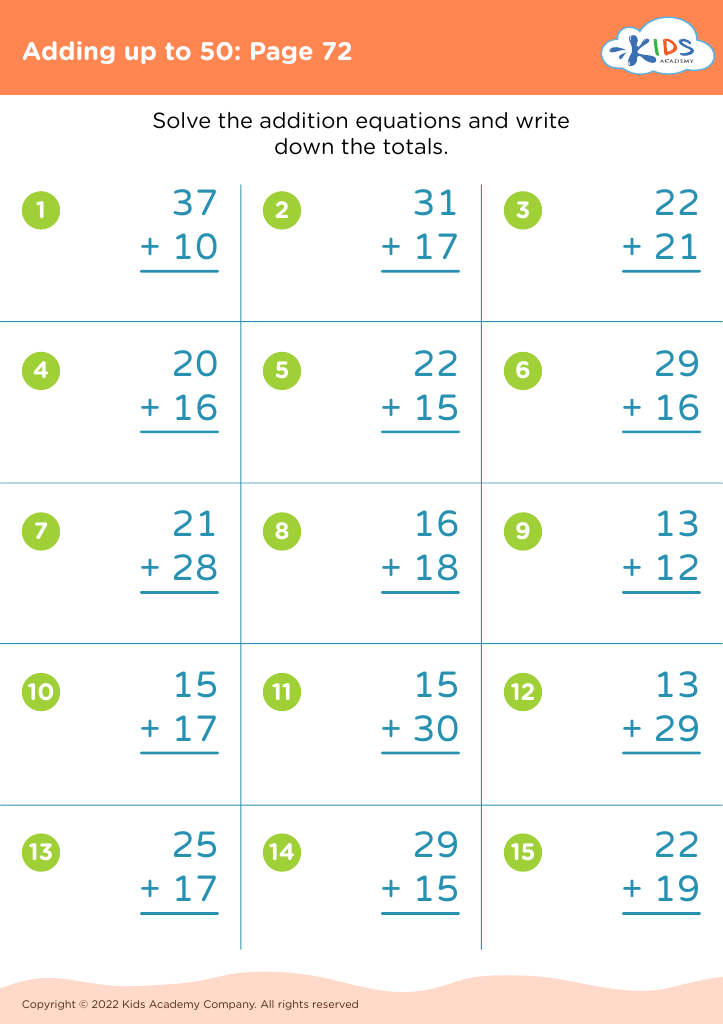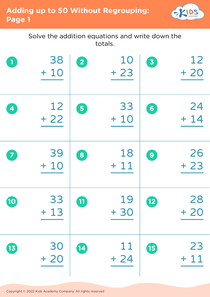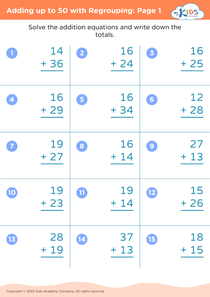Understanding multiplication Adding up to 50 Misc Worksheets for Ages 7-8
3 filtered results
-
From - To
Unlock the power of multiplication with our "Understanding Multiplication: Adding Up to 50 Misc Worksheets" designed for young learners aged 7-8. These engaging worksheets simplify multiplication concepts, making learning both fun and effective. Students will connect addition and multiplication through diverse activities, reinforcing fundamental math skills. Perfect for reinforcing classroom lessons at home or in the classroom, these resources help children grasp multiplication through visual aids and hands-on practice. Our worksheets are tailored to strengthen critical thinking and boost confidence in young mathematicians. Get started today and watch your child's mathematical abilities soar while they enjoy the process of learning multiplication!
Understanding multiplication and addition up to 50 is crucial for children ages 7-8, as these math skills lay the foundation for mathematical reasoning, problem-solving, and critical thinking. As parents and teachers, there are several reasons to prioritize these concepts.
Firstly, mastering multiplication supports a child's overall arithmetic skills, resulting in increased confidence in math. When children understand multiplication as repeated addition, they can analyze and solve larger problems more efficiently, setting the stage for more complex mathematical concepts in the future.
Additionally, recognizing how addition and multiplication are interrelated enhances logical thinking. This understanding is vital not only in math but also in everyday situations, such as budgeting, planning, and reasoning.
Moreover, building these skills at this age accelerates cognitive development and makes learning more engaging. Incorporating fun games and interactive lessons solidifies their comprehension in enjoyable ways that promote a lifelong love for learning.
Finally, arithmetic proficiency affects a child's performance in all subjects. By prioritizing multiplication and addition, parents and teachers help children develop essential skills that foster academic success and encourage perseverance, shaping their approach to future learning challenges. Therefore, investing time and resources into understanding these concepts is critical for every child's educational journey.


















